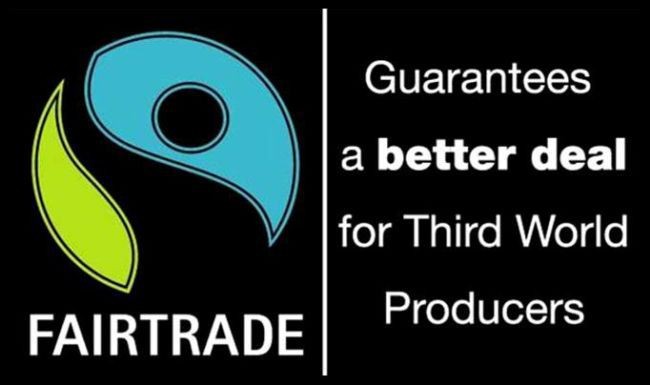Fair Trade Your Supermarket Fair Trade 101
Post on: 16 Март, 2015 No Comment

What is Fair Trade?
Fair Trade is a system of exchange that honors producers, communities, consumers, and the environment. Fair Trade helps ensure that farmers and artisans throughout the developing world receive a fair price for their products, have direct involvement in the marketplace, and uphold environmental and labor rights standards. The system builds real and lasting relationships between producers in developing countries and businesses and consumers around the world.
What are the Principles of Fair Trade?
While there is not one set list of the principles of Fair Trade, and there are different approaches to implementing them, Fair Trade ensures the following general principles are met:
1. Creating opportunities for economically disadvantaged producers
Fair Trade supports small scale producers, those at the bottom of the economic ladder or from marginalized communities that otherwise do not have access to economic opportunities or mobility.
2. Payment of a fair price
Fair Trade ensures democratically organized producer groups receive a guaranteed minimum floor price for their product, enough to cover the costs of food, shelter, clothing, education, and medical care, within the local context.
3. Community Development
For each Fair Trade product sold, the cooperative or producer group also receives a set amount of money, called the social premium, which is invested in community development projects democratically chosen by the cooperative or Fair Trade committee.
4. Fair Labor Conditions
Fair Trade producers enjoy freedom of association, safe working conditions, and living wages. Forced child labor is strictly prohibited and women’s empowerment, such as maternity leave, is emphasized.
5. Direct, long-term trading relationships
With Fair Trade, importers purchase from Fair Trade producer groups as directly as possible, eliminating unnecessary middlemen and empowering farmers to develop the business capacity necessary to compete in the global marketplace. Producer groups are also often eligible for pre-harvest or pre-production credit so that they do not have to incur debt during production.
6. Democratic, transparent, worker-owned cooperatives
Fair Trade encourages and supports the cooperative system where each producer owns a portion of the business, has equal say in decisions, and enjoys equal returns from the market. Workers decide together how to invest the social premium democratically.
7. Environmental Sustainability
Harmful agrochemicals and Genetically Modified Organisms (GMOs) are prohibited in favor of environmentally sustainable farming methods that protect farmers’ health and preserve valuable ecosystems for future generations.
What Fair Trade Products are Available in the US?
As far as food products go, we can now find Fair Trade coffee, tea, cocoa, fruit, sugar, honey, rice, quinoa, vanilla, olive oil, flowers, spices, and wine in the US.
We can also find Fair Trade cotton and artisan goods such as jewelry, tablecloths, purses, and apparel.
Check out our Brands to Look For page to know which items to look for in your supermarket.
How can I identify Fair Trade products ?
When you are shopping, look for the label! The following labels will help you identify Fair Trade products:
Fair Trade USA (formerly Transfair) is a third-party certifier for Fair Trade products imported to the United States. If a product bears the Fair Trade Certified™ label (shown here) you know that the producer received a fair price for the product and that strict socioeconomic criteria have been met in production. The Fair Trade Certified label often applies to food and agricultural commodities. For more information on this, visit www.fairtradeusa.org .
Fair for Life Fair Trade Certification is a third-party certification program administered by the Institute for Marketecology (IMO). Fair For Life certification protects human rights at any stage of production and ensures that workers in hired labor situations enjoy good and fair working conditions and that smallholder farmers receive a fair share. The Fair For Life label applies to a variety of products including fresh fruit, coffee and tea, and essential oils used for body care products.
The Fair Trade Federation is an organization of fully-committed Fair Trade businesses. Members of the federation include retailers, wholesalers and suppliers that have been carefully screened to ensure they support the principles of Fair Trade throughout their supply chain. FTF members sell a variety of products, from handmade and artisan goods such as clothing and jewelry, to food products such as rice and tea, as well as body-care products. For a list of Fair Trade items commonly found in supermarkets visit our Brands to Look For page.
Fair Trade Labeling Organizations International (FLO) is a network of organizations whose role is to develop and review Fair Trade standards for certification. These standards apply to all Fair Trade producers and companies who market Fair Trade products, such as importers, exporters and licensees. The US-based member of FLO is TransFair USA.
In Washington, D.C., we will be reaching out to Safeway, Giant, and Harris Teeter in particular to get them to stock more Fair Trade items. Based on our own survey of grocery stores in Washington, we were able to find Fair Trade products in the following supermarkets:














